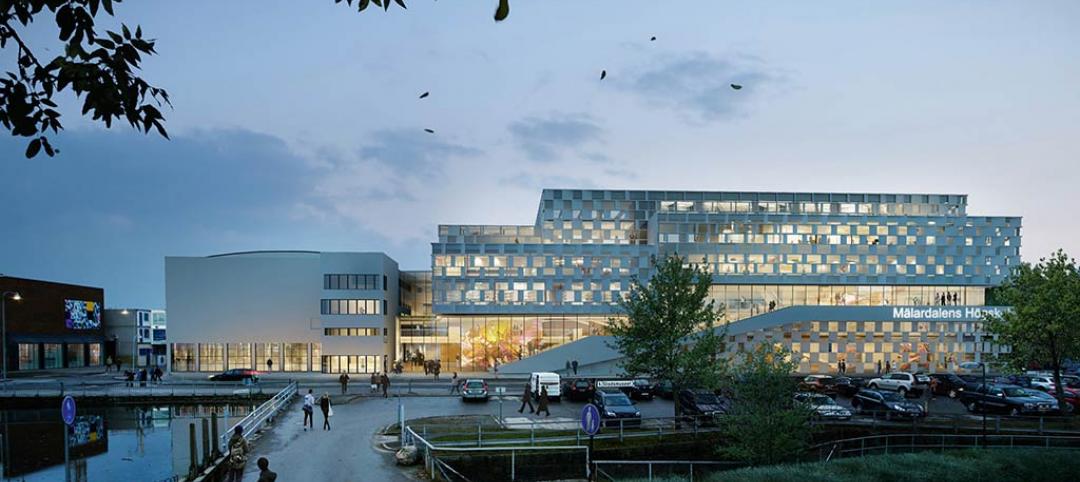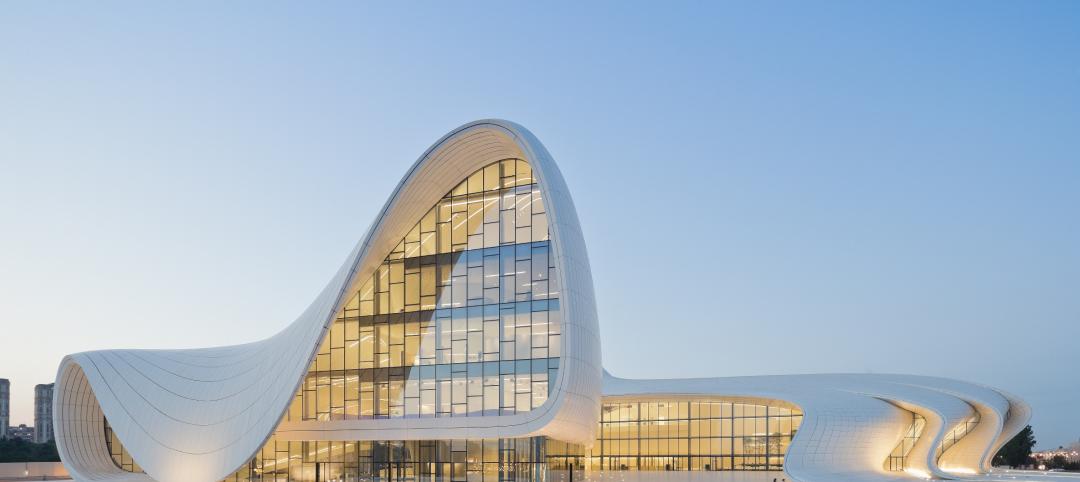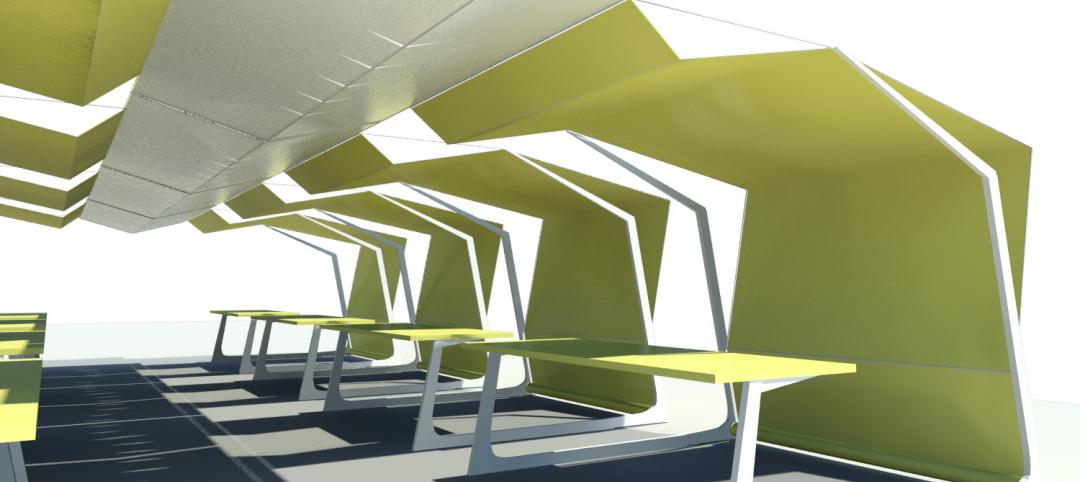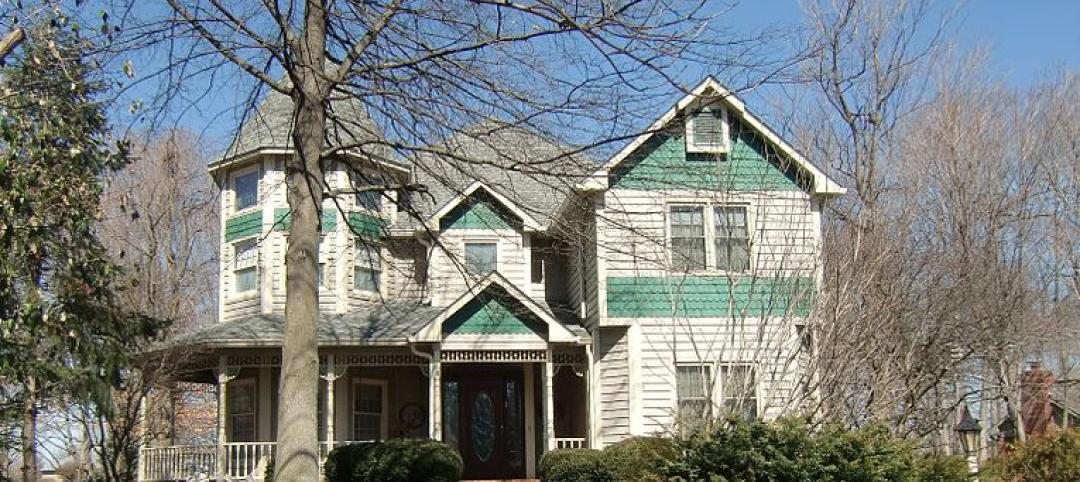A meeting of 52 key Chinese and international architecture and planning firms yielded the China Accord—a pledge to cooperatively lower carbon emissions in the built environment.
The meeting was hosted by the China Exploration and Design Association – Architecture Branch (CEDAAB) and by Architecture 2030. “We understand our moral and professional responsibility to address the issue of greenhouse gas emissions if we are to stay within the 2° C threshold established by the international scientific community, and the Accord is just the beginning of our joint efforts,” said Ed Mazria, Architecture 2030 Founder and CEO. “We have a long and exciting road ahead of us to decarbonize the built environment.”
The China Accord supports the Chinese government’s targets to peak and begin reducing carbon emissions, as well as the State Council’s Green Buildings Action Plan and the recent China-US Joint Presidential Statement on Climate Change. A number of initiatives will result from the Accord, including professional training, knowledge-sharing events and programs, a broad-based stakeholders’ forum, and the localization of design and planning strategies utilizing real-time simulation tools.
Among the international firm signatories were DLR Group, Skidmore Owings & Merrill, ARUP, Gensler, CallisonRTKL, HKS Architects, Perkins+Will, HDR, and Glumac.
Related Stories
| Jul 1, 2014
Winning design by 3XN converts modernist bathhouse to university library
Danish firm 3XN's design wins competition for a new educational facility for Mälardalen University in Sweden, which will house a library, communal spaces, and offices for 4,500 students and staff.
| Jul 1, 2014
Zaha Hadid's flowing Heydar Aliyev Center named Design of the Year for 2014
The Design Museum's Design of the Year award has been awarded to Zaha Hadid's Heydar Aliyev Center. Hadid is not only the first woman to win the top prize, but the center is the first architectural project to win the overall competition.
| Jun 30, 2014
Autodesk acquires design studio The Living, will create Autodesk Studio
The Living, David Benjamin's design studio, has been acquired by Autodesk. Combined, the two will create the Autodesk Studio, which will "create new types of buildings, public installations, prototypes and architectural environments."
| Jun 30, 2014
San Antonio green lights multimodal transit center
The new 90,000-sf development will principally service San Antonio’s growing network of city bus and VIA PRIMO bus rapid transit service, including real-time arrival updates, as well as become an iconic public plaza for the city.
| Jun 30, 2014
Philip Johnson’s iconic World's Fair 'Tent of Tomorrow' to receive much needed restoration funding
A neglected Queens landmark that once reflected the "excitement and hopefulness" at the beginning of the Space Age may soon be restored.
| Jun 30, 2014
Research finds continued growth of design-build throughout United States
New research findings indicate that for the first time more than half of projects above $10 million are being completed through design-build project delivery.
| Jun 30, 2014
Narrow San Francisco lots to be developed into micro-units
As a solution to San Francisco’s density and low housing supply compared to demand, local firms Build Inc. and Macy Architecture each are to build micro-unit housing in a small parcel of land in Hayes Valley.
| Jun 30, 2014
Arup's vision of the future of rail: driverless trains, maintenance drones, and automatic freight delivery
In its Future of Rail 2050 report, Arup reveals a vision of the future of rail travel in light of trends such as urban population growth, climate change, and emerging technologies.
| Jun 30, 2014
4 design concepts that remake the urban farmer's market
The American Institute of Architects held a competition to solve the farmer's markets' biggest design dilemma: lightweight, bland canopies that although convenient, does not protect much from the elements.
| Jun 30, 2014
Harvard releases the State of the Nation’s Housing 2014
Although the housing industry saw notable increases in construction, home prices, and sales in 2013, household growth has yet to fully recover from the effects of the recession, according to a new Harvard University report.

















